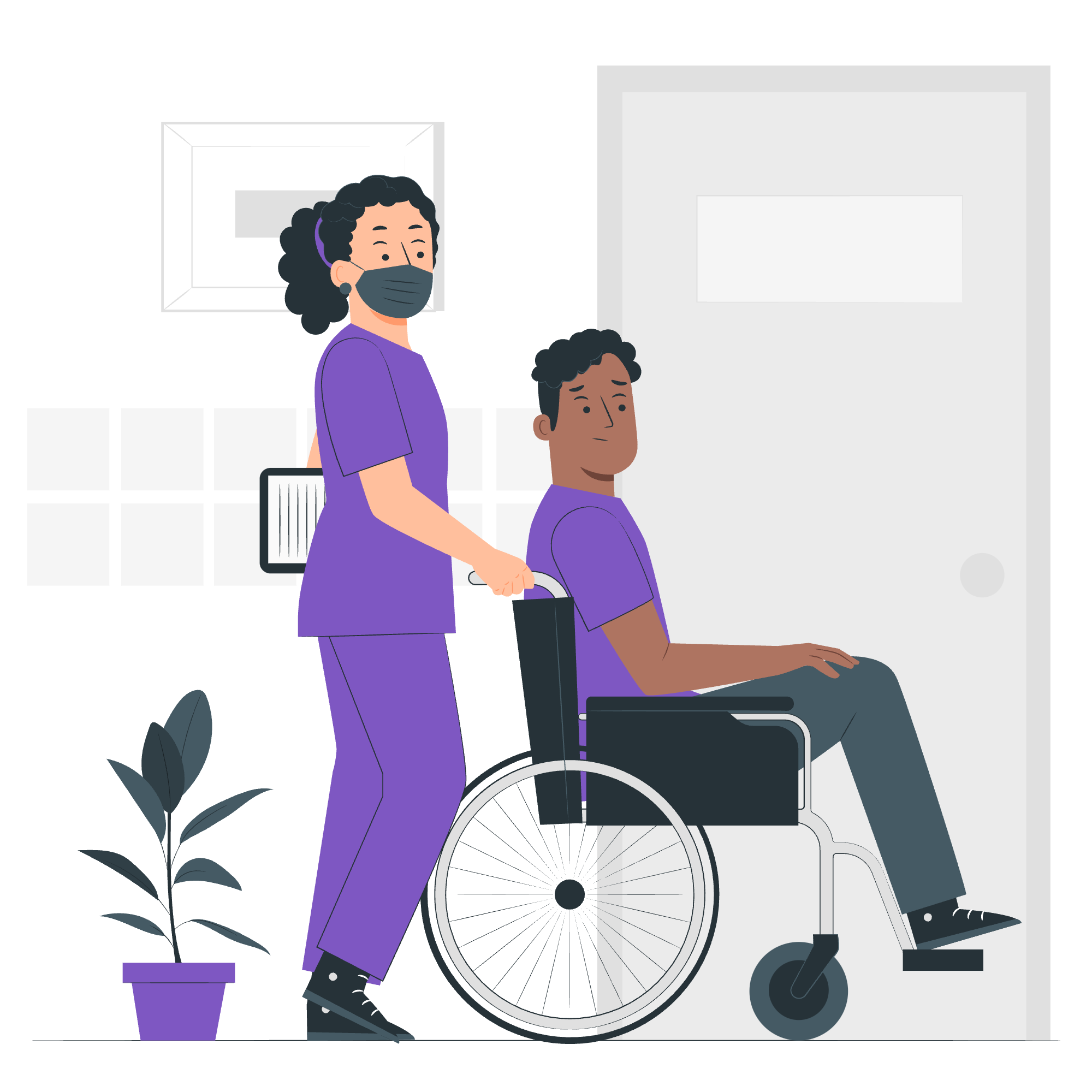Edited By: Adam Vega, CFP®
April 30th, 2023
As our loved ones age, it is often necessary for us to step in and help with their care. While this can be a rewarding experience, it can also be a challenging one that requires a great deal of patience, empathy, and dedication. Here are seven skills that are essential for those caring for their aging relatives.
1. Empathy
Empathy is the ability to understand and share the feelings of another person. This is an important skill when caring for an aging relative because they may be experiencing a range of emotions as a result of their physical and mental health. According to a study published in the Journal of Gerontological Nursing, empathy is critical to providing quality care to older adults because it allows caregivers to connect with their clients on a deeper level and provide more personalized care.
To fully provide this deeper level of understanding, it is important to listen actively to your loved one and understand their perspective. You can also try to imagine yourself in their situation and think about how you would feel if you were in their position. It is also important to practice self-care and avoid burnout, as this can affect your ability to empathize with others.

Your loved one may be frustrated by their limitations, anxious about their future, or grieving for their losses. It is important to take the time to listen to your loved one and acknowledge their feelings. You may not be able to solve all of their problems, but you can offer them comfort and support.
2. Time Management
Caring for an aging relative can be a time-consuming task, especially if they require daily assistance with tasks such as bathing, dressing, and eating. Effective time management is crucial to ensure that all tasks are completed on time and to prevent caregiver burnout. Family Caregiver Alliance shares that caregivers should prioritize tasks, delegate responsibilities to others, and make time for self-care to prevent exhaustion and maintain their physical and mental health.

It is important to prioritize your time and establish a routine that works for both you and your loved one. To improve time management skills, you can use tools such as calendars, to-do lists, and alarms to help you stay organized and on track. You can also use technology to manage your loved one’s medication schedules, track appointments, and stay in touch with healthcare providers.
3. Communication
Effective communication is key to providing good care for an aging relative. It is important to establish open lines of communication with your loved one so that you can understand their needs and preferences. This may involve listening carefully to their verbal and nonverbal cues, such as body language and facial expressions, to better understand their loved ones' needs and emotions.

Three of many important strategies, provided by the National Institute on Aging, that you should practice while speaking with an aging relative are:
1. Listen actively
Listening actively when caring for an aging relative is greatly important, as it allows you to better understand and meet the needs of your loved one while fostering a sense of trust, empathy, and connection (mmLearn.org). Effective listening skills can help you identify and address the emotional, physical, and cognitive needs of your aging relative, helping to ensure their overall well-being and quality of life. Active listening can also help caregivers detect early signs of health issues or changes in their loved one's condition, enabling them to seek timely medical intervention and support.
Furthermore, by attentively listening to the thoughts, feelings, and concerns of aging relatives, caregivers can demonstrate their empathy and genuine interest in their loved one's well-being, which can contribute to a stronger and more trusting caregiver-patient relationship. This compassionate approach is very important when discussing sensitive topics, such as end-of-life care, as it allows for open and respectful conversations that respect the individual's independence and preferences (mmLearn.org). This effective listening can also help you identify and address any underlying fears, anxieties, or misconceptions that your aging relatives may have about their care or health conditions, allowing them to provide appropriate reassurance, education, and support.

2. Speak clearly
Speaking clearly is very important for caregivers, as your aging relative likely struggles with hearing loss or deficit. It may feel necessary to raise your voice when your relative does not understand you, but it is more important to speak clearly in a normal tone of voice because raising your voice can distort “language sounds and can give the impression of anger,” (National Institute on Aging). Distortion can be even more frustrating to your aging relative if they already struggle to hear your normal voice. Additionally, a tone of anger can jeopardize their comfort or trust in you. Because this connection and communication is so vital to their relationship with them as their caregiver, it is important that you do not make them feel frustrated or uncomfortable.
3. Be patient
Being patient when communicating with an aging relative is vital, as it fosters a more open and supportive dialogue, allowing for a better understanding of their needs, preferences, and concerns. Community Homecare emphasizes the importance of patience in improving the caregiver-patient relationship, suggesting that taking the time to listen and engage with the elderly person in a compassionate and attentive manner can help build trust, rapport, and a deeper emotional connection. As aging relatives may experience difficulties in expressing themselves or processing information, a patient caregiver can provide the necessary support and encouragement, ensuring that their loved one feels heard, respected, and valued, which ultimately contributes to a more positive and successful caregiving experience.

It is also important to be patient when communicating with your aging relative, because it can directly impact their emotional well-being, self-esteem, and overall quality of life. A patient and empathetic approach to communication can help reduce feelings of frustration, confusion, and isolation that aging relatives may experience due to cognitive decline, sensory impairments, or other health issues. By having the patience to rephrase questions or statements when necessary, and actively listen to your relative’s responses, you can facilitate more effective communication with your aging relative, allowing you to better understand their needs and provide appropriate care and support. Moreover, open and patient communication can help promote social engagement and mental stimulation, which are crucial factors in maintaining cognitive health and emotional well-being in older adults.
These practices will allow you to have an open discussion with your aging family member, sharing your expectations and understanding their needs so that you can best work with each other.
It is also important to communicate effectively with healthcare providers, including doctors, nurses, and therapists, to ensure that your loved one receives appropriate care. Caregivers should ask questions and clarify information to ensure that they understand the care plan and any changes that occur.
4. Organization
Caring for an aging relative brings a variety of responsibilities, including scheduling appointments, managing medications, and coordinating care with other family members and healthcare providers. It is important to stay organized to avoid missing important tasks or appointments.
To combat the chaos associated with the responsibilities of being a caregiver, Caregiver Action Network suggests resources such as the app “Caring Village”. This app allows caregivers to “make to-do lists, create care plans, keep a calendar, keep a medication list, store documents, and keep a wellness journal” so that all of their responsibilities are organized in one spot.
It is also important to keep important documents, such as power of attorney, healthcare proxies and insurance information, in a safe and accessible place. Make sure to localize and protect this information so that you have access to it when needed.
Also, don’t be afraid to reach out for help. When needed, it is important to seek support from family members and healthcare providers to help manage tasks and prevent caregiver burnout. Organizing with family members to share the burden of caregiving will allow you to find rest in between responsibilities, and care for yourself.

5. Patience
Caring for an aging relative can be a slow and, sometimes, frustrating process. It is important to have patience and understand that your loved one may need extra time to complete tasks or communicate their needs. This may involve slowing down your own pace and taking the time to listen and respond to your loved one. It is also important to be patient with yourself and acknowledge that caregiving can be a challenging role.
The group Companions for Seniors shares how it is important to “carve out time and energy for self-care,” and how this will provide you with more energy and patience when working with aging relatives. Having patience for both yourself and your loved one will make a large difference when you are faced with strenuous and frustrating situations.

You may practice patience by listening carefully and avoiding assumptions when speaking with your loved one. Ask questions when necessary, but make sure that they have the opportunity to explain their needs fully, as this process can be tolling for them as well.
6. Flexibility
Caring for an aging relative can be unpredictable, and it is important to be flexible and adapt to changing circumstances. Your loved one’s needs may change over time, and you may need to adjust your care plan accordingly. This may involve being open to new ideas and solutions, as well as being willing to seek out additional resources and support.
The website Seniors Guide provides two ways for caregivers to practice flexibility with their aging relative; focusing on what is urgent first and rebuilding/ reprioritization. Focusing on what is urgent first will allow you to address any time sensitive needs of your loved one, including an ER visit or emergency treatment. Focusing on what is urgent may require you to put off other responsibilities such as work or family commitments, but will ensure that you are acting in favor of your relative’s needs.

Rebuilding your schedule is also essential to the flexibility you must show as a caregiver. If you encounter a crisis early, make sure you know how you will be able to manage this, while simultaneously making arrangements to complete your other responsibilities. This may mean asking a family member to pick up your child or a coworker to cover your shift. Dedicate the time your relative needs to them, and reprioritize your other commitments. These practices will allow you to “navigate the surprises” of caring for your loved one and develop “methods for meeting your obligations”, (Seniors Guide).
7. Dedication
Caring for an aging relative can be a long-term commitment, and it is important to be dedicated to your role as a caregiver. Dedication often means time. Ensuring that you set aside enough time for your loved one may involve making sacrifices, such as giving up personal time or career opportunities, to ensure that your loved one receives the care they need.
Other than time, you will need to practice dedication emotionally. It is important to understand the emotional needs of your aging relative so that you can support them fully. The support they need will likely include quality time, attentive listening, and reassurance, according to Homecare Assistance.

It is also important to be committed to your own self-care and well-being, as this will help you to provide better care for your loved one. The company Adultcare Assistance describes how being a caregiver “exerts a lot of physical and mental energy every day”. In other words, being a caregiver is draining and you need to care for yourself as well. Keeping your mental and physical energy high will allow you to be more alert and involved in caring for your loved one. This will make your time with them more productive and helpful.
Conclusion
In conclusion, caring for an aging relative requires a range of skills, including empathy, time management, communication, organization, patience, flexibility, and dedication. By developing these skills early and seeking out additional support when needed, you can provide the best possible care for your loved one while simultaneously maintaining your own health and well-being.









